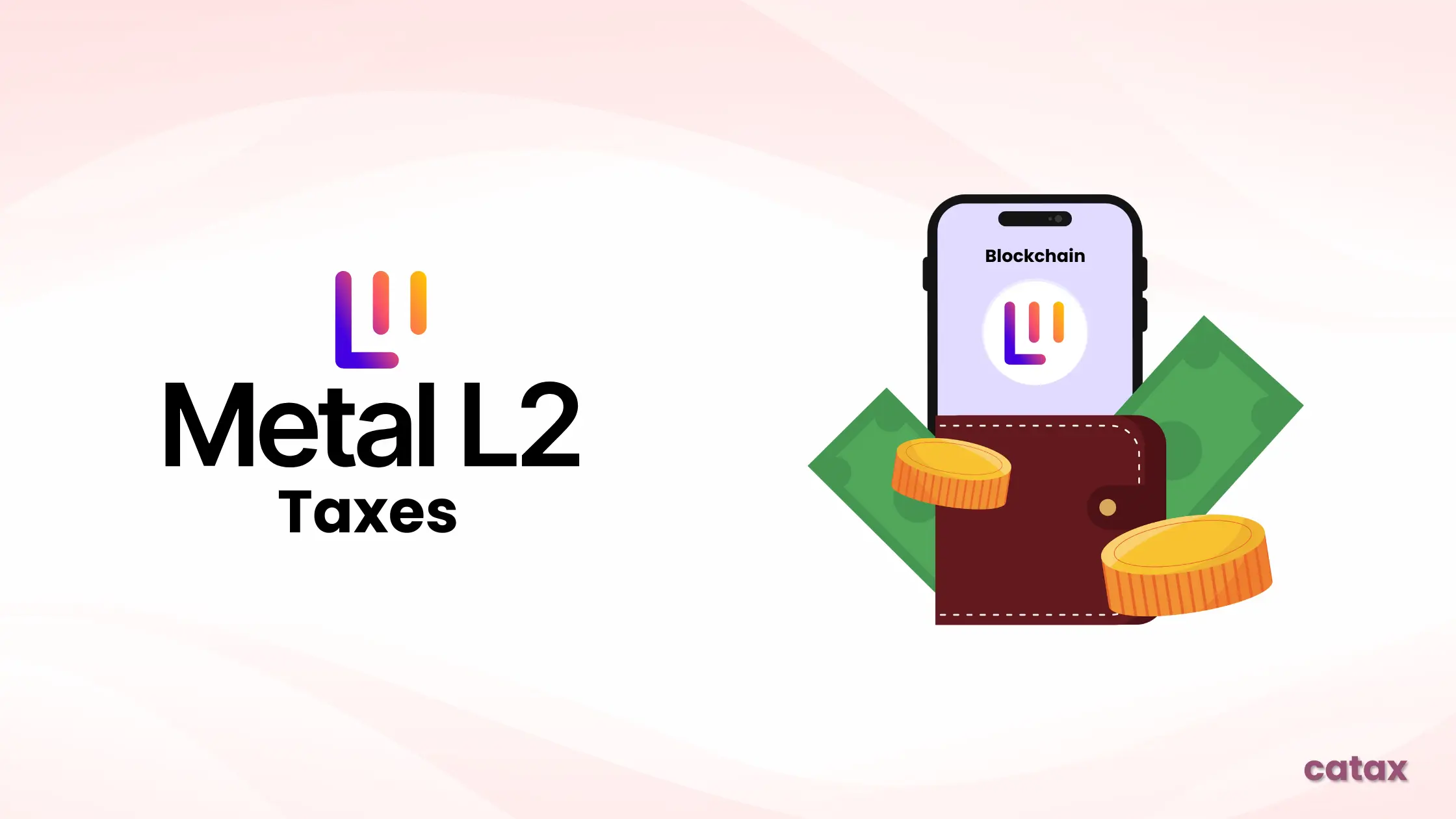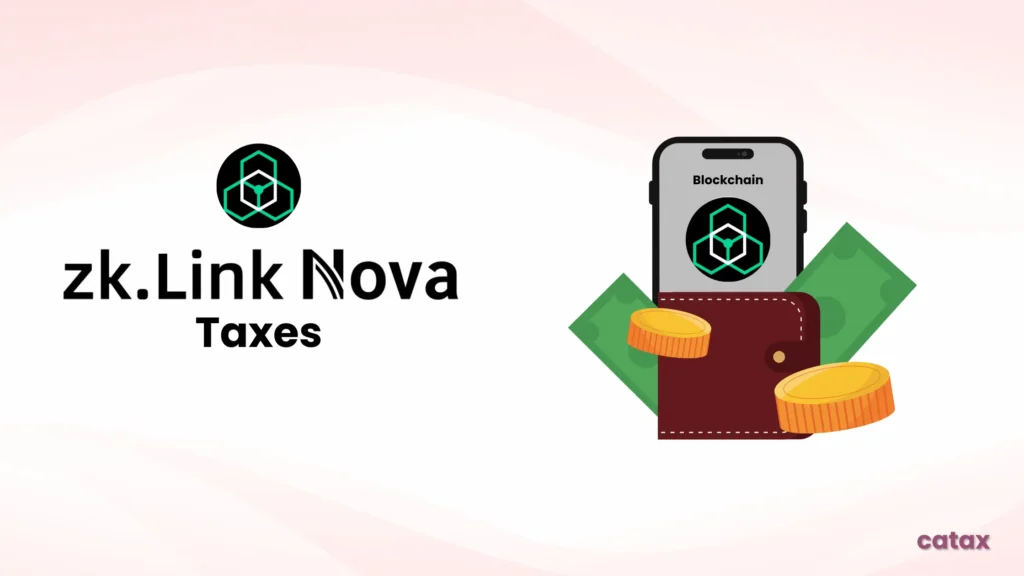Cryptocurrency tax laws differ greatly around the world, and Metal L2 (MTL), is no different. If you are buying, selling, trading or staking Metal L2, you may be liable for taxes depending on where you reside and how you use your crypto. It is important to understand how tax authorities in your country treat crypto activity so that you remain compliant and do not incur unexpected penalties.
In this guide, we will explore everything you need to know about how Metal L2 is taxed in plain language.

- How to Connect Your Metal L2 Wallet to Catax
- Are Metal L2 (MTL) Transactions Taxable?
- Can You Deduct Trading Fees and Other Costs?
- How Is Metal L2 (MTL) Taxed Based on Holding Time?
- How Is Staking Income from Metal L2 Taxed?
- Can You Use Metal L2 Losses to Lower Your Taxes?
- How to Stay Compliant with Metal L2 (MTL) Tax Regulations
How to Connect Your Metal L2 Wallet to Catax
To accurately monitor your Metal L2 transactions and calculate your taxes, you can connect your wallet to Catax. The process is simple and will ensure that it automatically records all your activity:
- Open your Metal L2 wallet or block explorer (such as MetaMask, Trust Wallet, Ledger, etc.).
- Locate your public wallet address and copy it.
On Catax:
- Log in to Catax and select your country.
- Choose Chain and then search for Metal L2 Wallet.
- Paste your public address and click Connect.
Catax will now sync your transactions automatically and help you calculate your tax obligations in real-time.
Calculate My Taxes ➤Are Metal L2 (MTL) Transactions Taxable?
Yes, most countries consider cryptocurrency transactions taxable. How Metal L2 transactions are taxed depends on how you use MTL:
- Selling MTL for profit: You pay capital gains tax if you sell Metal L2 for more than you paid.
- Swapping MTL for other cryptos: Swapping MTL is usually a taxable event, even without cashing out to fiat.
- Paying with MTL: If Metal L2’s value has increased, using it for payments may trigger capital gains tax.
- Staking rewards: Most places tax staking rewards as income when you receive them.
- Getting paid in MTL: If someone pays you in Metal L2, you likely owe income tax based on its value at the time.
Due to the fact crypto tax rules manual vary from country to country, it’s best to check local regulations or utilize a tool like Catax which will enforce the proper rules in consideration of your location.
You can also check out our Country-Specific Guide for Crypto in Your country. This guide provides insights on regulations, tax implications, and compliance measures breifly explained for each country.
Can You Deduct Trading Fees and Other Costs?
Metal L2 users will inevitably ask this question, yet the answer depends on your country’s tax treatment of crypto. Some countries allow you to deduct expenses incurred during your crypto transactions, which may include:
- Exchange fees you are charged when buying or selling MTL.
- Network fees you pay when moving MTL between wallets.
- Securing your MTL wallet with a hardware wallet, or utilizing a service that secures your private keys.
However, not all of these expenses will be available for deduction in every country (i.e. in some countries they will only look at the purchase price, aka the cost basis, and may not allow the other fees to count as deductions). Review the local guidelines for your country or speak with a tax advisor to double-check.
How Is Metal L2 (MTL) Taxed Based on Holding Time?
The amount of tax you pay on profits from Metal L2 can vary based on how long you held the tokens:
- Short-term holdings: If you sell your MTL token within one year of when you bought it, you may be taxed at higher rates akin to income tax rates.
- Long-term holdings: You hold your MTL token for more than a year, many countries will reduce long-term capital gains tax to long-term rates.
- Flat rate countries: In some countries, whether you hold crypto for a certain period of time does not matter in how they tax you.
Learn how your country treats holding periods on crypto, so you can decide when to minimize taxes on sales and profits.
How Is Staking Income from Metal L2 Taxed?
Staking Metal L2 earns you rewards, however those rewards are typically taxed in some form. There are typically two ways countries classify staking as income:
- Taxed as income: Some countries tax staking rewards when you receive them, so you must report them as part of your annual income.
- Taxed as capital gains: Other countries tax you only when you sell or exchange those rewards, based on any profit made.
Know your country’s rules: Understanding how your country treats staking helps you report it correctly. If taxed as income, you don’t need to sell the rewards, but you may still owe taxes.
Can You Use Metal L2 Losses to Lower Your Taxes?
Yes, in many countries if you sell MTL for less than the amount you paid, you can use that loss to offset tax. Generally, there are several options for losses:
- Offsetting gains: You may be able to use losses from Metal L2 to offset profits on other cryptos or various stocks.
- Carrying loss forward: If you had no gains in the same year, some locations will allow you to carry a loss forward to offset tax in a future year.
- No offsets: There are a few countries that do not allow any deduction for crypto losses, so you should check your local jurisdiction.
Make sure you keep records of all your transactions so you can prove your losses if needed.
How to Stay Compliant with Metal L2 (MTL) Tax Regulations
As governments regulate stricter measures on crypto taxes, it’s vital that you also comply with regulations and keep abreast. This is what you need to do to comply:
- Learn how your country taxes Metal L2: Is it treated as income, capital gains, or business income?
- Understand what costs you can deduct: Know if trading fees, staking rewards and security expenses you incur are deductible.
- Keep accurate records: Document every Metal L2 transaction (buying, selling, trading, staking and spending).
- Use a crypto tax calculator: A platform like Catax can allow you to only calculate and file taxes accordingly.
- Talk to a tax professional: If you aware still unsure about anything it’s probably best to talk to tax advisor that understands crypto tax regulations in your country.


